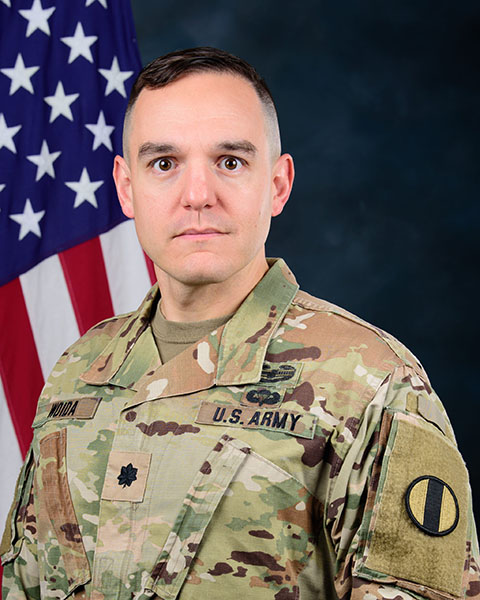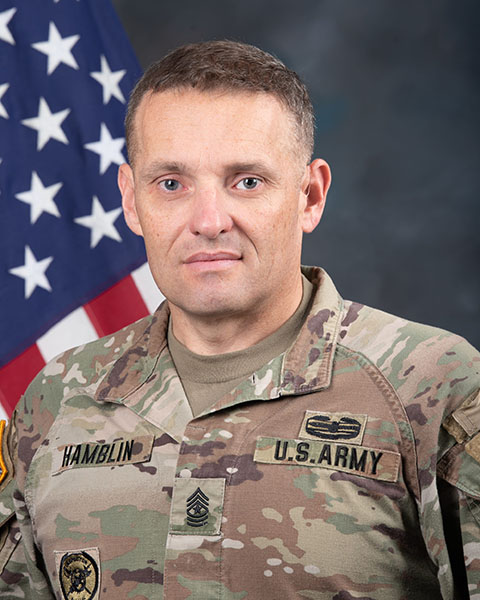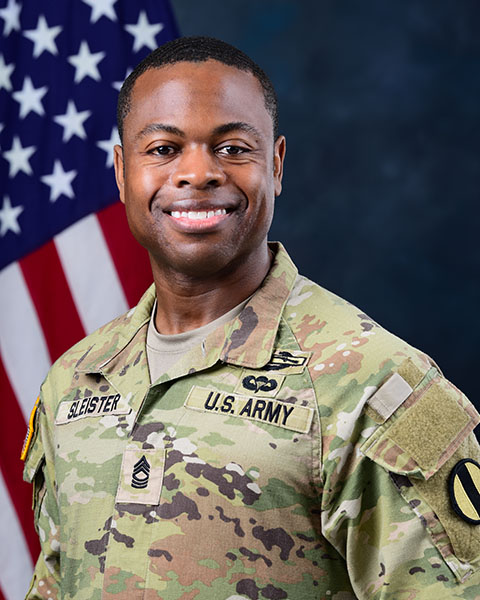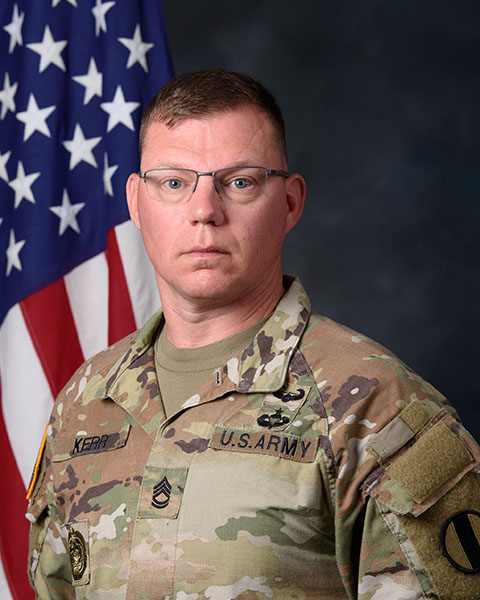Military Equal Opportunity
(MEO)
Mission
Assist the Commanding General in his role as the Command’s Equal Opportunity Officer. To monitor the execution of TRADOC’s EO program in all commands, agencies, and activities under TRADOC’s jurisdiction to ensure equal and fair treatment of all military personnel and family members, without regards to race, color, national origin, religion, sex or sexual orientation.
Vision
The Equal Opportunity (EO) assists commanders to foster and maintain a positive command climate that is free of unlawful discrimination, and everyone is treated with dignity and respect. TRADOC will provide EO and fair treatment to Soldiers, Civilians, and Family Members without regard to race, color, national origin, religion, sex (to include pregnancy), and sexual orientation.
MEO Program
Manager

MEO Program
Sergeant Major

MEO Program
Senior Advisor

MEO
Professional

- Commanders and organizational leaders will foster and maintain positive command climates. A positive command climate is an environment free from personal, social, or institutional barriers that prevent Soldiers from rising to the highest level of responsibility for which they are qualified. Soldiers are evaluated on individual merit, performance, and potential. The evaluations of commanders will include an assessment of their compliance with MEO policy.
- The Army will provide an environment that is free of unlawful discrimination. Discrimination occurs when someone, or a group of people, is harassed, intimidated, insulted, humiliated, or is treated less favorably than another person or group, because of their race, color, sex (to include pregnancy), national origin, religion, or sexual orientation. It includes use of disparaging terms with respect to a person’s race, color, sex (to include pregnancy), national origin, religion, or sexual orientation which contributes to a hostile work environment.
- When discrimination is alleged, commanders will take immediate and appropriate action to investigate the allegations and correct any unlawful discriminatory practices. In substantiated cases, commanders will consider appropriate disciplinary action.
- The chain of command will promote, support, and enforce MEO and Harassment Prevention and Response policy and programs. The chain of command has primary responsibility for identifying and correcting discriminatory harassment.
- The operational language of the Army is English. Commanders may require Army personnel to use English when performing official duties but may not require the use of English for personal communications which are unrelated to official duties.
- Violations of MEO and Harassment Prevention and Response policies may result in disciplinary action under the UCMJ, Arts. 92, 133, or 134.
- Soldiers are required to follow policies both on and off-post, during duty and non-duty hours.
- Policies apply to work, living, and recreational environments (including both on and off-post housing).
- Retaliate against a member who files a discrimination or harassment complaint.
- Knowingly make a false accusation of discrimination.
- While in a supervisory or command position, condone or ignore discrimination, harassment, disparaging terms, or hostile work environment.
Color discrimination
Occurs when an individual is treated differently based on the lightness, darkness or toner color characteristics of the person. This type of discrimination can occur with race discrimination. Color discrimination can occur between persons of different races or ethnicities. It can also occur when members of the same race treat each other differently because of lightness or darkness of their skin.
Sex discrimination
Occurs when an individual is deprived of an opportunity because of their sex (including pregnancy) or when decisions are made based on stereotypes and assumptions about abilities, traits, or the performance of individuals on the basis of sex.
Racial discrimination
Occurs when an individual is treated differently because of their racial group, racial characteristics (for example, hair texture, color, facial features), or because of their relationship or association with someone of a particular race.
Religious discrimination
Occurs when an individual is treated more or less favorably because of their religious beliefs or practices—except to the extent a religious accommodation is warranted. For example, imposing stricter promotion requirements for a person of a certain religious or imposing more or different work requirements on an individual because of their religious beliefs or practices, or forcing an individual to participate—or not participate—in a religious activity.
National origin discrimination
Occurs when an individual is treated less favorably because of their origin, ethnicity or accent, or because it is believed they are a particular nationality.
Sexual orientation discrimination.
One’s emotional or physical attraction to the same and/or opposite sex (homosexuality, bisexuality, or heterosexuality). Complaints may be based on actual or perceived sexual orientation, as well as association with an individual or affinity group associated with a particular sexual orientation.
Informal complaint
An informal complaint is one that a Soldier, cadet, or Family member does not wish to file in writing on a DA Form 7279. Informal complaints may be resolved directly by the complainant addressing the offending party, a peer, or another person in or outside the complainant’s chain of command or NCO chain of command, or the MEO professional.
Formal complaint
A formal complaint is one that a complainant files in writing using a DA Form 7279 and swears to the accuracy of the information. Formal complaints require specific actions, are subject to timelines, and require documentation of the actions taken.
Anonymous complaint
Complaints where the complainant remains unidentified may be handled as either an informal or a formal com-plaint and entered in MEO database, as such. The commander will determine if sufficient information is provided to proceed as either an informal or formal complaint.

